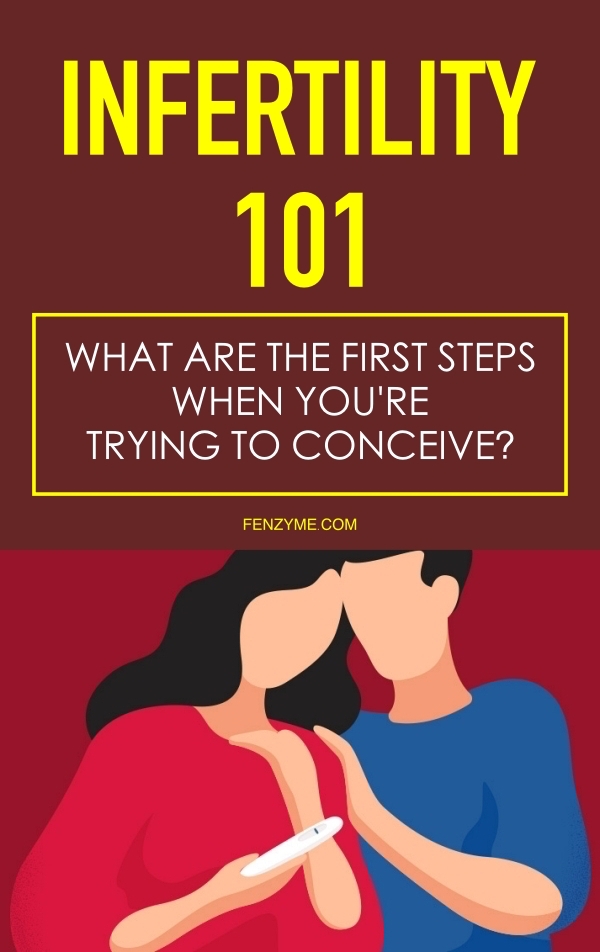Infertility 101: What are the First Steps When You’re Trying to Conceive?
Pregnancy is a staple in every 7th grade sex education textbook. While our instructors might tell us getting pregnant is easy, the reality of the situation can be more complicated.

From low ovarian reserves to genetic conditions, individuals might struggle to conceive for a multitude of reasons. Thankfully, there are reputable organizations, like Donor Egg Bank USA and local fertility clinics, which are readily available to help you build the family of your dreams.
The question is: what’s the first step you can take if you’re having trouble getting pregnant on your own?
While IVF or egg donation might be the solution you need, coming to this conclusion isn’t always easy. It’s essential to take small steps in learning about your reproductive health, to better understand the best treatment options for your unique situation.
How Common Is Infertility?
Let’s go back to middle school health class for a moment.
It’s understandable that most people ended those lessons with a ‘fire and brimstone’ perception of how quickly you can get pregnant without using a condom or any other type of birth control.

On the contrary, the facts show something vastly different. One in eight couples will deal with infertility, or, in other words, approximately 7.4 million individuals will receive fertility treatment during their lives.
Whether you’re struggling to get pregnant or sustain a pregnancy, it can be comforting to know you’re not alone.
Infertility is far more common than many of us believe, but thankfully there are reproductive options available to overcome it.
Beginning Your Infertility Journey: What’s the First Step You Should Take?
Most primary care physicians or gynecologists prefer patients under the age of 36 wait at least a year before considering fertility treatment. Those over the age of 36 should seek treatment right away, as fertility begins to decline rapidly for women over the age of 34. The first step you should always take is speaking with your care provider about your specific health or fertility concerns.

Once you’ve made an appointment with your healthcare provider, they can help you decide the first steps you should take to overcome your problems getting or staying pregnant.
Some of the first suggestions your doctor may make include simple, at-home options to better monitor your period and ovulation cycles. You might be asked to use an ovulation tracker app, take your basal body temperature, or monitor changes in your cervical mucus.
If you’re still struggling after implementing these changes, they’ll likely recommend undergoing a collection of fertility tests, such as:
- Transvaginal ultrasounds
- Blood work
- Ovarian reserve testing
- Hysterosalpingogram (HSG)
- Ovulation testing
- Saline ultrasounds
- Semen analysis
What are the Most Common Types of Infertility Treatments?
Once you’ve completed your infertility testing, your doctor will work with you to choose a treatment plan. There’s a wide range of different options available, depending on your situation and your age. Some of the most common include:

- Intrauterine Insemination (IUI): An IUI involves collecting a sperm sample, either from your partner or a donor, and inserting it directly into your uterus.
- In Vitro Fertilization (IVF): During an IVF cycle, a person’s ovaries are stimulated to produce more eggs than usual. Those eggs are then collected during an egg retrieval process and fertilized outside of the individual’s body. The fertilized embryos are then placed directly into their uterus for implantation.
- Donor Egg & Sperm: If your doctor has diagnosed you or your partner with insufficient eggs or sperm, you can use a reputable facility to acquire donor eggs and sperm. These samples will then be used during a traditional IUI or IVF cycle.
- Adoption: It’s essential to remember that if fertility treatment doesn’t feel like the right option for you and your future family, adoption is always a possibility.
Overcoming Infertility – One Step at a Time
When you want nothing more than to have a child, realizing the process isn’t as easy as you expected it can be devastating.

Don’t give up hope for the family you’ve been dreaming of; there are plenty of ways to overcome the challenge of infertility. All it takes is speaking with a medical professional who can assist you down the path of reproductive treatment.
Any individual who longs to become a parent deserves the chance to do so.
Take your experience a moment at a time and remember there’s a vast number of possible solutions to help you experience parenthood.





